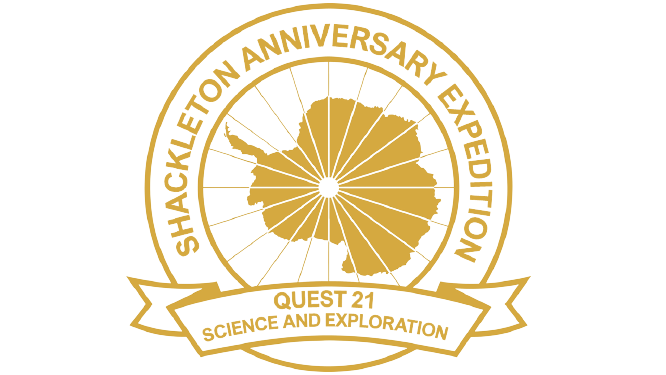The Science Has Only Just Started
n report, Paul leaves it to others to judge whether Antarctic Quest 21 was a successful expedition. I’ll try to provide him with an answer for his Priority 3: Science.

“What is a Dream, If Not A Blueprint for Courageous Action”
Read about the Antarctic Quest 21 Expedition Objectives, Logistics, and Historical Context
The Expedition Team will be conducting important scientific research into climate change, microplastic pollution, and much more.
Deputy Leader Antony Jinman is connecting the Expedition to schools and classrooms around the world via Like To Be Ltd.
You can follow the expedition LIVE as the publish blog posts from Antarctica using a satellite communications technology.
The team marks the centenary of the death of Sir Ernest Henry Shackleton (15/02/1874 – 05/01/1922)
The Antarctic Quest 21 Expedition was named to honour the legacy and spirit of Shackleton’s Antarctic expeditions: courage, endeavour, exploration and science.
On January 5th 2022 at midday GMT the team took part in a livestreamed commemoration service held on the Antarctic Peninsula. Thank you to everyone who joined us! You can view the entire livestream in the video below.
The Antarctic Quest 21 expedition commemorates the iconic explorer and leader, Sir Ernest Shackleton, in the centenary year of his final expedition to the Antarctic.
All discovery starts with first steps and in the case of Antarctica, these were made during the ‘Heroic Age’ of polar exploration in the 19th and 20th century. Many of the expeditions at that time recorded scientific observations and brought back specimens, providing information of an environment unperturbed by human impact.
Little did the early explores know that they laid the foundations of Antarctic science that has become so crucial for predicting our future in the age of manmade climate change some 200 years later. In that spirit, Antarctic Quest 21 celebrates and continues the legacy of Sir Ernest Shackleton.
n report, Paul leaves it to others to judge whether Antarctic Quest 21 was a successful expedition. I’ll try to provide him with an answer for his Priority 3: Science.
Expedition Leader Paul Hart shares the final Situation Report of the expedition, from Buenos Aires, Argentina Situation Update 20 January 2022 Location: Buenos Aires and Travelling to home destinations “Situation:…
We’re very happy to announce that the expedition team is now safely back in Argentina after a very challenging month on Antarctica.
The expedition team will travel from Ushuaia to the Antarctic Peninsula by ship, arriving on the continent on 15th December when their expedition into unexplored territory will begin.
This expedition is inspired by Sir Ernest Henry Shackleton, who was born February 15, 1874 and who died on January 5th 1922. The team will hold a commemorative event to honour his life.
All going well the team will be home around the 1st or 2nd February. There will be some welcome home parties and online events to celebrate what we hope will have been a successful expedition!
Schools and classrooms around the world can engage with custom educational content, webinars and Q&As during and after the expedition delivered by Like to Be Ltd.
All of our sponsors and associates are displayed here, but we wanted to give special thanks to our main sponsors below.